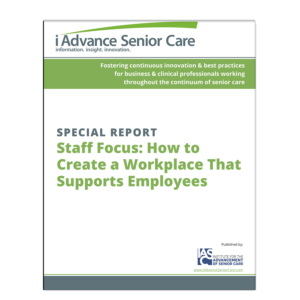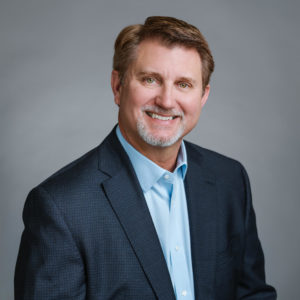Missing: Death Education for Nursing Facilities
| BY DONALYN GROSS, PHD, LCSW, CMP Missing: Death education for nursing facilities Staff need to be trained in comforting dying residents, their families, and themselves |
| Imagine yourself as a nursing home resident without family or any available friends. To whom can you turn who will understand your end-of-life issues? With whom can you discuss your last wishes? Who will take care of you when you are dying? Will you be alone? Caregivers at your facility may be the last people with whom you’ll have contact. Wouldn’t it be a relief to know that your caregivers are well trained to help you at the time when you are most uncomfortable? Let’s face it, who wants to talk about death? Sooner or later, though, we’re all going to have to face it. Being around others who are willing to talk about end-of-life issues makes it easier to release our innermost fears regarding death. Lying in a nursing facility, perhaps in a fragile state, it’s important to know there is someone near who understands your concerns and will be there for you until the end. And it’s important for staff to feel comfortable in that role. When I completed nursing assistant training 25 years ago, the only topic covered regarding death and dying was postmortem care. I was 22 years old and had no experience whatsoever with a dying person. Discussion about death was not encouraged by nursing staff. Nursing assistants were taught to be task oriented, meeting the physical needs of the dying in a precise and clinical manner. Nurses would close the curtains around the patient nearing death and periodically check for cessation of vital signs. I often wondered how my own death would be. Would I die alone or in pain? I see many CNAs and nurses come into long-term care facilities who lack the experience and training regarding death and dying, and some who have never witnessed a death. They feel as I have felt-fearful, anxious, and helpless. Debra Sullivan, RN, BSN A large percentage of elderly people die in nursing homes. But nursing homes have clients other than the elderly, including people with terminal illnesses, such as AIDS, as well as head injury patients and people with chronic debilitating diseases. As a result, the age of nursing home residents is declining on average, yet the challenge to staff remains the same. We understand medical death, in which breathing ceases as a result of terminal illness, accidents, and/or age; psychological death, as in Alzheimer’s disease; and theological death, the moment the soul leaves the body. Death is our “final frontier.” As a nurse on a palliative care/hospice unit, I recognize the need of a support system. It can be very difficult emotionally, physically, and spiritually. Each of us has the right to die pain-free and with dignity. In order for each family to receive the individual and necessary support for this to happen, we must protect, enhance, and continue to develop and educate staff in end-of-life issues. The support of a bereavement counselor, educational workshops, and spiritual enhancement is of the utmost importance for staff. Sally Wheeler, RN Death education is necessary to enable us to think and talk about our own deaths. If we can understand and feel comfortable with this, we can become a valuable source of help to others. As we learn to cope with our own grief, we can better work with the dying, as well as meet the needs of the bereaved. Training professionals to provide these educational and supportive services is increasingly important. Who should be trained in death education? Everybody-medical staff, housekeepers, laundry workers, porters, kitchen staff-in contact with that resident. Simple caring and compassion are the main ingredients of what is needed to ease the fears of the dying. There are few issues confronting healthcare professionals that have equal or more impact than the death of a resident. Nursing facilities provide care and staff are often referred to as caregivers. Without proper support and death education, staff are on a quick road to burnout and turnover, and may be subject to issues related to grieving and depression. The resident’s family and support systems are also compromised and often are in need of support by this very same staff. Death education cannot be underestimated. It must be provided with strong administrative support with the involvement of direct-care management staff. Internal support groups facilitated by knowledgeable staff or consultants are instrumental to the success of providing these services. Having an educated perspective that allows for understanding the social and emotional aspects of a resident’s death will facilitate our success of providing this important service. Our residents and families need us to be the experts! George Mercier, Administrator A Working Model of Death Education and Care The main component of the program is the Volunteer Vigil Team, which sits with the actively dying resident and offers support to the family. A Resource Library, available to all, includes publications on end-of-life issues, funeral/disposition issues, various illnesses, and advance directives. Support groups for staff, residents, and survivors may be included in the program. When a resident dies, a memorial service is held on the unit, complete with candles, flowers, and cards. Remembrance services are necessary and important to ensure closure for all who knew the deceased. An on-staff facility chaplain is a welcome addition; not all facilities have them. One approach to help the dying is the use of bedside music. Historically, the harp has been an instrument that can create an atmosphere for allaying a myriad of physical and emotional states, including fear, anxiety, and pain. Music transcends generations and cultures for its healing and transitional qualities. The appropriate music at the right moment can reduce blood pressure, relieve anxiety and stress, ease pain, and facilitate the transition from life to death. Dale Flarida |
|
| The Good Endings program can be used by any type of healthcare facility and formatted to its particular needs. An added benefit of the program is that it will enhance the marketability of a facility. The Good Endings program is being used in such facilities as the Heritage Hall West Nursing Home in Agawam, Massachusetts, a Genesis Eldercare facility, and at the East Longmeadow Health Care Center in East Longmeadow, Massachusetts. Conclusion Do long-term care facilities have an obligation to meet the psychosocial needs of their staff as well as their residents? The answer is yes. An informed, supportive staff will contribute to the best care possible for terminally ill and dying residents. |
| Donalyn Gross, PhD, LCSW, CMP, creator of the Good Endings program, has been a thanatologist (death and dying counselor with hospitals, hospices, correctional systems, home health agencies, and long-term care facilities) for 26 years. She teaches at local colleges and provides training workshops for healthcare professionals. For further information, call (413) 733-8592, e-mail goodendings@hotmail.com, or visit www.goodendings.net. To comment on this article, please send e-mail to gross0904@nursinghomesmagazine.com. For reprints in quantities of 100 or more, call (866) 377-6454. |
I Advance Senior Care is the industry-leading source for practical, in-depth, business-building, and resident care information for owners, executives, administrators, and directors of nursing at assisted living communities, skilled nursing facilities, post-acute facilities, and continuing care retirement communities. The I Advance Senior Care editorial team and industry experts provide market analysis, strategic direction, policy commentary, clinical best-practices, business management, and technology breakthroughs.
I Advance Senior Care is part of the Institute for the Advancement of Senior Care and published by Plain-English Health Care.
Related Articles
Topics: Articles , Staffing











